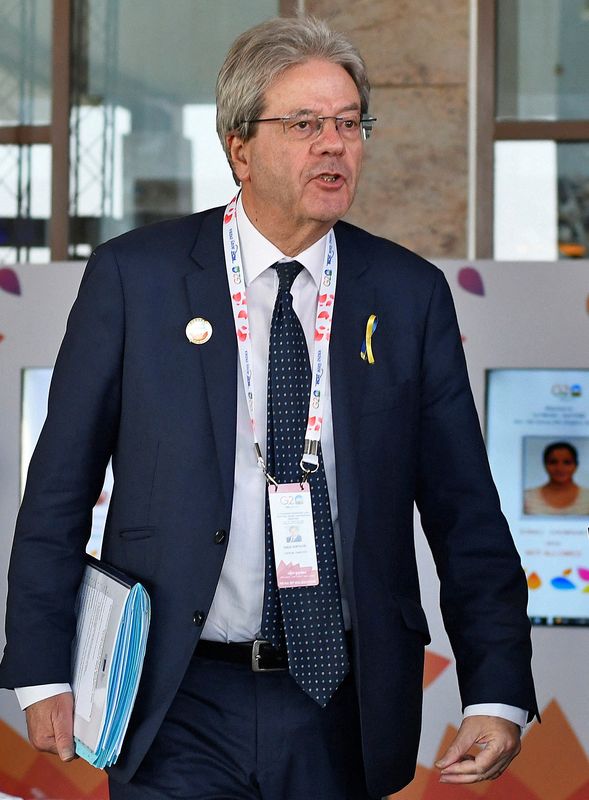CERNOBBIO, Italy (Reuters) – The EU’s Economy Commissioner is confident that Italy will get the latest instalment of post-pandemic funds despite questions over the meeting of targets to unlock the money, he said on Saturday.
“I believe that the points that need to be clarified will be clarified, I see great goodwill on the part of the (Italian) government,” Commissioner Paolo Gentiloni told the Ambrosetti business conference in northern Italy.
Gentiloni, himself a former Italian prime minister, said he believed there was room for Italy to renegotiate parts of the plan, noting changes had already been approved for Germany, Finland and Luxembourg.
The European Commission has frozen an overdue 19-billion-euro tranche of post-pandemic funds. Italy has until the end of April to persuade Brussels to release the funds, a government source has told Reuters.
Italy is the single-largest beneficiary of the EU post-COVID Recovery Fund, and meeting the goals agreed with Brussels is one of the main challenges for Prime Minister Giorgia Meloni’s rightist government that took office in October.
Rome has so far secured almost 67 billion euros of the roughly 200 billion it is due to receive through 2026, dependent on it achieving Brussels’ policy prescriptions.
To gain some flexibility, Italy’s EU Affairs Minister Raffaele Fitto has said the government is in talks with Brussels to replace some projects from its original recovery plan, which it now realises it cannot complete by a 2026 deadline.
These would be replaced with less ambitious programmes that can be completed on time, while the original ones could be financed from separate European Union funds that can be spent until 2029.
(Reporting by Giancarlo Navach and Federico Maccioni, Writing by Keith Weir, Editing by William Maclean and Giles Elgood)
